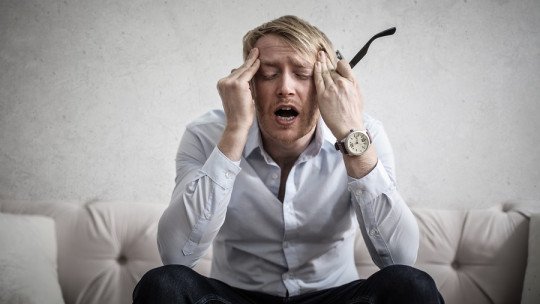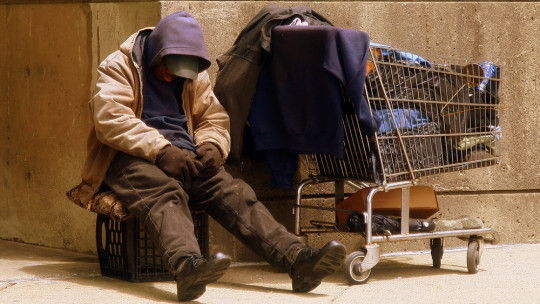
Sometimes it is believed that homophobia, as discrimination against people due to their emotional-sexual orientation, is a debt settled. Under certain discourses, the fact that currently many Western countries teach comprehensive sexual education programs in schools with the purpose of informing and preventing homophobia is often highlighted; that progress has been made in recent decades towards the decriminalization of relationships between people of the same sex; or that there are 35 countries that allow same-sex couples to marry (a number that, by the way, is still relatively low if we consider the number of nations that violate LGBT+ rights day after day).
Nevertheless, The reality is that homophobia resides beyond the reach of the legislative sphere. It is a series of practices and behaviors that promote aggression towards homosexual people for the mere fact of being so. This aggression can be explicit, but it can also manifest itself in subtle ways. So much so that some authors even use the construct of internalized homophobia to refer to the prevalence of these hate speeches in homosexual people, who end up replicating them.
With this panorama, it is logical that violence linked to homophobia causes lesbians, gays and bisexuals to be exposed to a greater risk of suffering from mental health problems. This has been studied empirically. Therefore, in this article we will explain what they are the main psychological problems caused by homophobia.
A look at the core of homophobia
When we talk about homophobia we are referring to a form of discrimination that generates particular stress in people for the simple fact of belonging to a sexual minority. Added to this are other situations that people from the LGBT+ community usually face, such as the acceptance and integration of their own desire into their romantic and sexual practices or, if desired, sharing their sexual orientation with their close social network: friends and family. This process is complex and highly personal; It varies from subject to subject, from their individual characteristics and from the culture that surrounds them.
Considering a sociocultural dimension of this problem, homophobia results from the contradiction between the practices, values or ways of being of a person with respect to the heteronormative social values assigned to them. This implies that homophobia is not necessarily imparted when a person explicitly expresses romantic affection towards another of the same sex as him or her. Homophobia punishes those gestures, words, beliefs, clothing, tastes… that do not agree with what is expected of a person according to said values.
Contextualizing the phenomena is key to understanding and at the same time questioning these forms of hatred that still persist, that are knotted in the social relationships that individuals in a society establish on a daily basis and that escape what can be written down in the laws. Legislation is essential, but so is asking what obsolete values homophobia responds to. Thinking about a couple of two people of the same sex undoubtedly strains the notion of the modern nuclear family and marriage as an institution. It also does so with certain social constructions such as the “maternal instinct” and the reproductive place to which women were relegated, that of caring for children and the home; but it also points against the commands towards man and the must-be of virility. Homosexuality questions the foundations of the hegemonic family model, and although this is perhaps what raises a disapproving view from some social sectors, it can never justify the discrimination and hatred that is at play even today.
The psychological problems resulting from homophobia
Homophobia has negative consequences on the psychological well-being of people who suffer from it. Based on the contributions of various scientific research, below are the mental health problems that arise as consequences of homophobia.
1. Symptoms of post-traumatic stress
One of the contexts where most experiences of violence and discrimination due to homophobia occur is at school. Due to having been victims of bullying, some of the LGBT+ people who suffered homophobia during adolescence continue to have symptoms of post-traumatic stress, such as avoidance of situations that have been learned to be dangerous, hyperarousal, reexperiencing among others.
2. Low self-esteem
Low self-esteem involves negative evaluation of constituent aspects of oneself, such as one’s own abilities, individual characteristics or physical appearance. The scientific literature regarding the study of this variable is very vast and most studies agree that low self-esteem is a common sequel among people who suffered homophobia.
3. Increased anxiety and depression
For their part, people who have been stigmatized for being or being perceived as lesbian, gay or bisexual present higher levels of anxiety and depression, even when the time in which they were discriminated against was distant from the present.
4. Social isolation
Acceptance and social support from family and friends when a person shares their emotional-sexual orientation that is different from the norm is key to psychological well-being, and has a positive impact on mental health. It’s known that Close ties can be psychological buffers against social stress, depression, anxiety, and the negative effects of stressful life events. However, when a person is rejected by his or her inner circle, he or she tends to perceive the lack of support and acceptance in others and decrease his or her trust in them. Unfortunately, this factor could explain one of the reasons why the suicide risk figures in LGBT+ people are much higher than those of the heterosexual population.
5. Substance abuse
Ultimately, the increased risk of substance abuse is another of the most common consequences of homophobia. In fact, along with social stress, discrimination is the risk factor that has been most proven to affect substance abuse in the LGBT population. Addictions provide relief in the short term for people who are suffering from a difficult situation; It is a way to avoid the painful emotional states they experience. However, in the long term, the person can become extremely dependent on the substance, negatively affecting all areas of life, including their physical and mental health.








